Travel experts predict nocturism, or night tourism, activities focused on nighttime experiences, will be a big trend this year.
Rebecca Douglas has been to Iceland 29 times and is booking her 30th trip for one reason: to photograph the Northern Lights. The British tourist began photographing the lights in 2010, fascinated by the greens, purples, yellows and blues that dance across the sky. She travels annually to Finland, Norway, Iceland and the English countryside to capture the colorful optical phenomenon.
Douglas is one of the pioneers of the noctourism trend, which focuses on nighttime experiences. Those who love this form of travel often want to escape the daytime crowds and experience the magic of midnight.
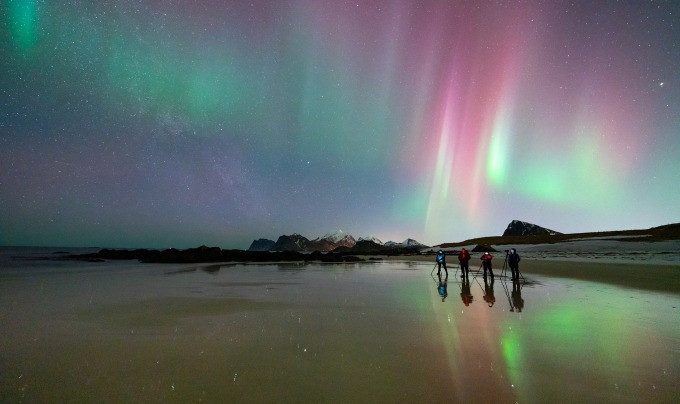
Booking , a Netherlands-based online travel platform, named this the top travel trend of 2025 after conducting a global survey of more than 27,000 travelers. 70% of respondents said they were considering places with unpolluted skies to stargaze, admire once-in-a-lifetime events (Blood Moon, Solar Eclipse, Total Lunar Eclipse) and study constellations. In addition, travelers would like to participate in events such as city exploration , night tours or camping on a Full Moon night at sea.
Luxury travel company Wayfairer Travel says night travel experiences are set to increase by 25% by 2024. Most travelers request to see the Northern Lights in Norway and Iceland; night dives in Australia’s Great Barrier Reef and Egypt’s Red Sea; and nocturnal wildlife viewing in Zambia and Kenya, or stargazing in Chile’s Atacama Desert.
“Night travel is set to transform the travel industry by 2025 as guests increasingly seek unique experiences after dark,” commented Wayfairer Travel CEO Jay Stevens.
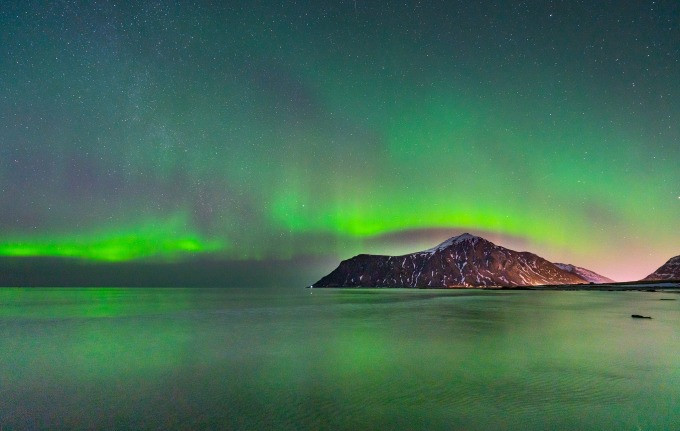
According to luxury travel company Scott Dunn, eclipse hunting could become a popular experience for many travelers in the near future. The company representative said that more and more travelers are passionate about venturing to remote areas to witness unique cosmic scenes. Greenland is expected to be the next booming destination this year.
However, travelers with a passion for nightlife need not travel too far. Hotels from Hawaii to the US to Austria now offer a variety of stargazing activities. According to NASA, the next total solar eclipse will take place on March 14 and will be visible in many parts of the world , including the Americas, Western Europe and West Africa.
Douglas is not keen on organised tours, preferring to plan her own because she wants to avoid large groups. In addition, large groups often create light pollution from phones and camera flashes, which can affect the photographer’s experience. She usually travels from August to April, the best season to see the Northern Lights, and stays in remote towns.
"Just a street light or indoor light can ruin a photo," the photographer explained, adding that taking photos at night is a rewarding experience for herself.
Source


![[Photo] Prime Minister Pham Minh Chinh chairs the Government's online conference with localities](https://vphoto.vietnam.vn/thumb/1200x675/vietnam/resource/IMAGE/2025/10/5/264793cfb4404c63a701d235ff43e1bd)
![[Photo] Prime Minister Pham Minh Chinh launched a peak emulation campaign to achieve achievements in celebration of the 14th National Party Congress](https://vphoto.vietnam.vn/thumb/1200x675/vietnam/resource/IMAGE/2025/10/5/8869ec5cdbc740f58fbf2ae73f065076)









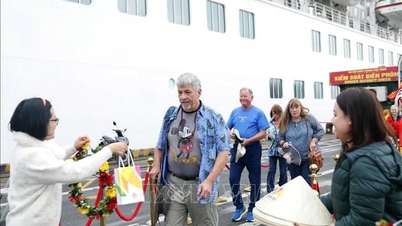
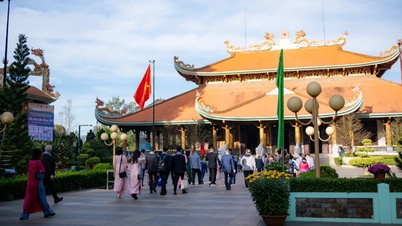















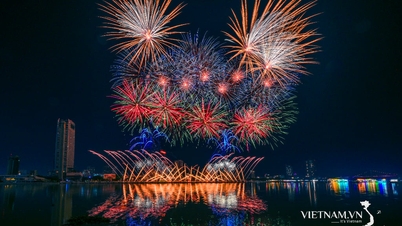



























![[VIDEO] Summary of Petrovietnam's 50th Anniversary Ceremony](https://vphoto.vietnam.vn/thumb/402x226/vietnam/resource/IMAGE/2025/10/4/abe133bdb8114793a16d4fe3e5bd0f12)

![[VIDEO] GENERAL SECRETARY TO LAM AWARDS PETROVIETNAM 8 GOLDEN WORDS: "PIONEER - EXCELLENT - SUSTAINABLE - GLOBAL"](https://vphoto.vietnam.vn/thumb/402x226/vietnam/resource/IMAGE/2025/7/23/c2fdb48863e846cfa9fb8e6ea9cf44e7)
















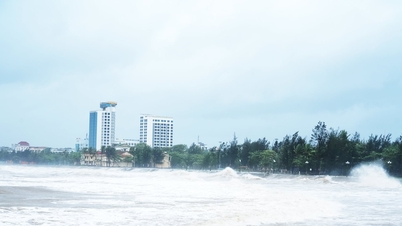




















Comment (0)